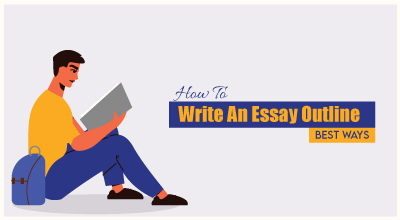
Understanding English Literature Studies
English literature explores the written works of authors across centuries, cultures, and genres. It involves critical analysis, interpretation of texts, and understanding literary devices like symbolism and characterization. These studies require you to delve deep into the meanings behind words and the intentions of the authors. You will encounter a wide range of genres including poetry, drama, fiction, and non-fiction, each with its own set of conventions and techniques. As you study, you’ll learn to appreciate the artistry involved in crafting a piece of literature and how it reflects and shapes society.
Read Also: Practical English Grammar Homework Tips for ESL Learners
Essential Tips for Studying English Literature
Here are some essential tips to help you succeed in your English literature studies. These tips will guide you through the process of reading, analyzing, and writing about literature in a way that enhances your understanding and enjoyment of the subject.
-
Tip 1: Read Actively
Engage actively with texts. Take notes, highlight key passages, and jot down your thoughts and questions as you read. This helps you stay focused and makes it easier to refer back to important points later. Active reading also involves questioning the text, considering different interpretations, and connecting what you read to broader themes and contexts. By engaging deeply with the material, you’ll develop a more nuanced understanding of the text and be better prepared to discuss and write about it.
-
Tip 2: Analyze Themes and Characters
Dig deep into themes and characters. Explore how they evolve throughout the text and their significance in shaping the narrative. Understanding the motivations, conflicts, and development of characters can provide insight into the themes of the work. Look for recurring motifs and consider how they contribute to the overall message of the piece. Pay attention to the relationships between characters and how these dynamics reflect larger societal issues or personal struggles. By analyzing these elements, you’ll gain a deeper appreciation for the complexity of literary works.
-
Tip 3: Understand Literary Devices
Familiarize yourself with literary devices such as metaphor, foreshadowing, and irony. Understand how authors use them to convey meaning. These devices are tools that writers use to add depth and layers of meaning to their work. For example, a metaphor can create powerful imagery and connections between ideas, while irony can add humor or highlight contradictions. Being able to identify and interpret these devices will enhance your ability to analyze texts and appreciate the craftsmanship of the author.
-
Tip 4: Research and Contextualize
Research the historical and cultural context in which a text was written. This adds depth to your analysis and enhances your understanding of the author’s intentions. Knowing the background of a work can provide insight into its themes, characters, and plot. For instance, understanding the social and political climate of the time can reveal why certain issues are addressed in the text and how they resonate with contemporary audiences. Contextualizing your readings will make your analyses richer and more informed.
Read Also: Comprehensive Economics Study Guides for College Students
Read Also: Affordable Assignment Writing Services for College Students
How to Ace Your English Literature Assignments
When tackling assignments, it’s important to approach them methodically to ensure you cover all aspects thoroughly. Here’s a step-by-step guide to help you excel in your English literature assignments.
-
Step 1: Plan Your Approach
Read the assignment prompt carefully. Plan how you’ll approach the analysis or essay, focusing on the main arguments and supporting evidence. Make an outline that includes your thesis statement, main points, and the evidence you will use to support your arguments. Planning helps you stay organized and ensures that you address all parts of the prompt. It also makes the writing process smoother, as you’ll have a clear roadmap to follow.
-
Step 2: Draft and Revise
Write a clear, structured draft. Revise for coherence, clarity, and adherence to the assignment guidelines. Your first draft is an opportunity to get your ideas down on paper, but it’s essential to review and refine your work. Check for logical flow, strong arguments, and effective use of evidence. Revising also involves checking for grammar and punctuation errors, as well as ensuring that your writing is concise and to the point. Don’t hesitate to rewrite sections if they don’t clearly convey your ideas.
-
Step 3: Seek Feedback
Seek feedback from peers or professors to refine your analysis. Constructive criticism helps improve your writing and analytical skills. Sharing your work with others can provide new perspectives and highlight areas that need improvement. Be open to suggestions and use them to strengthen your assignment. Feedback is an invaluable part of the learning process, as it helps you see your work through the eyes of others and make necessary adjustments.
-
Step 4: Consider Expert Help
If you’re struggling with complex texts or need assistance refining your analysis, consider visiting "Do My English Homework for Me". They offer expert guidance tailored to your English literature assignments. Professional help can provide the support you need to tackle difficult assignments and improve your understanding of the material. Whether you need help with research, writing, or editing, don’t hesitate to seek out resources that can enhance your academic performance.
My Perspective on English Literature Studies
English literature is more than just reading—it’s about interpreting, analyzing, and appreciating the complexities of human experience through words. Enjoy the journey of discovery! Literature opens up new worlds and perspectives, allowing you to explore different aspects of life and human nature. It’s a subject that challenges you to think critically and creatively, to question and reflect. The skills you develop through studying literature—critical thinking, analysis, communication—are valuable in any field. Embrace the challenges and rewards of literature studies, and let your passion for reading and analysis guide you.
Ready to Excel in Your English Literature Assignments?
If you’re ready to excel in your English literature assignments or need help mastering textual analysis, visit "Do My Essay Paper". Our professional assistance can ensure your assignments are insightful and well-crafted. Embrace the challenge and deepen your understanding of literature! Don’t let difficult assignments discourage you. With dedication and the right resources, you can excel in your studies and develop a lifelong appreciation for literature. Stay curious, keep reading, and always seek to understand the deeper meanings behind the words.


